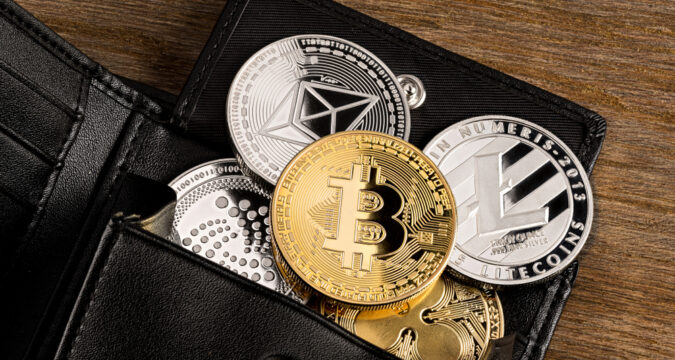
What is a Crypto Payment Gateway?
Cryptocurrency payment gateways are online channels that process cryptocurrency payments. In this manner, the sellers and buyers on an e-commerce website are able to process payments in the form of digital assets.
At present, the use of cryptocurrencies has become widespread in various sectors such as academics, supply chain, health care, logistics, and others. On this account, various businesses have initiated crypto-payment methods in addition to fiat currency payments.
A cryptocurrency payment gateway has the ability to exchange cryptocurrencies into fiat currencies for merchants. In this manner, merchants do not have to hold a digital wallet and receive cryptocurrency payments in the form of swapped fiat currencies in an automated and secure manner.
There are various cryptocurrency payment gateways such as PayPal, BitPay, and Coinbase Commerce Handle. A platform that wants to enable crypto-based purchases can add these payment channels at its forum as an alternative payment option.
How do Cryptocurrency Payment Gateways Work?
Cryptocurrency payment gateways can be added to a services or products offering site online in the form of API, plugins, or extensions. In this manner, the consumers of the platform are able to use listed cryptocurrencies to pay for their purchases.
However, the merchants are able to receive these payments in the form of fiat currencies via third party firms that are facilitating the crypto payment gateways. For every payment, the service providers also charge a nominal transaction fee from the consumers to cover business costs.
The transaction fee also accounts for validators or miner fees who verify blockchain records. Here are the following steps for using a cryptocurrency payment gateway:
- Consumers select a good or service at a website, application, or store. They have the alternative payment method option available in the form of cryptocurrencies if the platform has integrated a crypto payment gateway.
- Next, the consumer sends the allotted cryptocurrency payments from their digital wallet. However, the consumer is locked in a transaction window on account of market conversion rate fluctuations.
- The payment gateway services providers convert cryptocurrencies into fiat equivalents in real-time.
- The converted funds are deposited in the merchant’s designated account for withdrawals or other uses.
Advantages of Crypto Payment Gateways
Cryptocurrency payment gateways make transaction settlement very fast and instant in comparison to traditional payment channels.
Cryptocurrency payment gateways are able to process transactions at a fractional cost made up of service provider fee and service charges.
Crypto payment gateways use only one intermediary namely third party services provider to improve customer experience.
Merchants are protected against fraud thanks to the transparency of blockchain networks. However, there are some exceptions where businesses do not receive money after buyers have made card payments.
Crypto payment gateways have the ability to process various types of cryptocurrencies and also mitigate risk of price volatility.
Disadvantages of Crypto Payment Gateways
Crypto payment gateways are based on blockchain networks but they are not fully decentralized.
In some instances, payments are delayed on account of technical issues, market volatility, and hack attempts. In case if a crypto payment gateway is hacked the merchants are at risk of losing funds.
Crypto payment gateways can be costly in comparison to other payment options since they operate as middlemen and deduct fees based on blockchain transaction fee inflation rates.
Centralized organizations have to be regulated to ensure high-quality, reliable, and secure services, and fending off potential cybersecurity attacks.
Crypto Payment Gateways Vs Fiat Payment Gateways
Transaction Time
The average transaction processing time for a crypto payment gateway is around 1-10 seconds while for traditional fiat payment gateways it is up to 1 sec-14 days.
Intermediaries
The total number of required intermediaries in a crypto payment gateway is one but for traditional fiat payment gateways it can be more than 3.
Transaction Cost
The transaction costs on crypto payment gateways are more economic in comparison to fiat gateways.
Chargeback Fraud Protection
There is limited or no chargeback fraud on crypto payment gateways but there is a considerable risk of fraud at fiat payment gateways.
Conclusion
Crypto payment gateways are set to gain more popularity on account of increasing demand of various cryptocurrencies. However, it also depends on the regulatory framework in a region if businesses are able to integrate crypto payment options as alternative payments.




